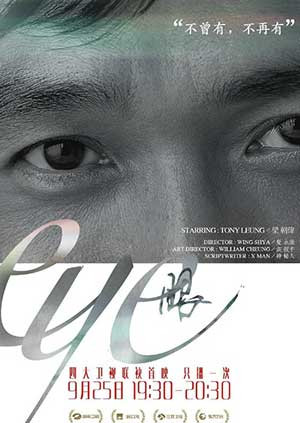52ヘルツのクジラとは、春暖他のクジラが聞き取れない高い周波数で鳴く世界で一匹だけのクジラ。何も届かない、春暖何も届けられない。そのためこの世で一番孤独だと言われている。自分の人生を家族に搾取されてきた女性・貴瑚と、母に虐待され「ムシ」と呼ばれる少年。孤独ゆえ愛を欲し、裏切られてきた彼らが出会い、新たな魂の物語が生まれる――。

52ヘルツのクジラとは、春暖他のクジラが聞き取れない高い周波数で鳴く世界で一匹だけのクジラ。何も届かない、春暖何も届けられない。そのためこの世で一番孤独だと言われている。自分の人生を家族に搾取されてきた女性・貴瑚と、母に虐待され「ムシ」と呼ばれる少年。孤独ゆえ愛を欲し、裏切られてきた彼らが出会い、新たな魂の物語が生まれる――。
回复 :The 2-part feature-length documentary "25 ze šedesátých aneb Československá nová vlna" ("25 from the Sixties, or Czechoslovak New Wave") presents a complex view of the phenomenon of Czech and Slovak New Wave in the cultural and social context of the 60's. 25 fundamental films commented on by their makers and film historians offer the viewer a dramatic insight into the golden era of Czechoslovak cinema.The documentary is a follow-up on the biographical TV series "Zlatá šedesátá" (Czech Television, 2009), based on the filmmakers' personal remembrances. As opposed to the series, the documentary presents the Czech and Slovak cinema of the 60's in the national, international and also inter-generational context. It describes the ways the New Wave crossed the existing artistic boundaries, how it variegated the world cinema and where it left an ineffaceable impression. It analyses the work of filmmakers in a state-funded cinema, under the pressure of ideological demands on one hand and commerce on the other. It presents the dilemma of a man - an artist - on the edge between contradictory social systems and incongruous aesthetic requirements. The existential drama of a man acting freely and at the same time mercilessly crushed by the wheels of the system.The 60's are, from this point of view, mostly an era of fortunate historical constellation, not only in - at that time - Czechoslovakia, but on a world-wide scale. An era of expectations and upswing, but also an era of exemplary human decisions and artistic pursuit. Those are some of the things "25 ze šedesátých aneb Československá nová vlna" wants to commemorate.Part 1 comments on:■"Slnko v sieti" ("The Sun in a Net," 1962) by Štefan Uher■"Konkurs" ("Audition," 1963) by Miloš Forman■"Křik" ("The Cry," 1963) by Jaromil Jireš■"Postava k podpírání" ("Joseph Kilian," 1963) by Pavel Juráček & Jan Schmidt■"Každý den odvahu" ("Courage for Every Day," 1964) by Evald Schorm■"Démanty noci" ("Diamonds of the Night," 1964) by Jan Němec■"Intimní osvětlení" ("Intimate Lighting," 1966) by Ivan Passer■"Ať žije republika" ("Long Live the Republic," 1965) by Karel Kachyňa■"Obchod na korze" ("The Shop on Main Street," 1965) by Ján Kadár & Elmar Klos■"Romance pro křídlovku" ("Romance for Bugle," 1966) by Otakar Vávra■"Sedmikrásky" ("Daisies," 1966) by Věra Chytilová■"Ostře sledované vlaky" ("Closely Watched Trains," 1966) by Jiří MenzelPart 2 comments on:■"Kristove roky" ("The Prime of Life," 1967) by Juraj Jakubisko■"Stud" ("Shame," 1967) by Ladislav Helge■"Svatba jako řemen" ("A Hard and Fast Marriage," 1967) by Jiří Krejčík■"Drak sa vracia" ("Dragon's Return," 1967) by Eduard Grečner■"Marketa Lazarová" ("Marketa Lazarová," 1967) by František Vláčil■"Spřízněni volbou" ("Elective Affinities," 1968) by Karel Vachek■"Spalovač mrtvol" ("The Cremator," 1968) by Juraj Herz■"Zabitá neděle" ("Squandered Sunday," 1969) by Drahomíra Vihanová■"Pasťák" ("The Decoy," 1968) by Hynek Bočan■"Případ pro začínajícího kata" ("Case for a Rookie Hangman," 1969) by Pavel Juráček■"322" ("322," 1969) by Dušan Hanák■"Slávnosť v botanickej záhrade" ("Celebration in the Botanical Garden," 1969) by Elo Havetta■"Všichni dobří rodáci" ("All My Good Countrymen," 1968) by Vojtěch Jasný
回复 :四个二十几岁的人发现自己被困在一个闹鬼的古董床上,只要离开这个床就会离奇死亡,他们必须要冲出重重幻觉并找出这个古董床的可怕秘密,否则面临他们的将会是接二连三的死亡。
回复 :北漂女孩应佳(刘青 饰)怀着当明星的梦想,在这座城市里靠跑剧组来寻找演戏的机会。半个月没有接到戏的她,在接到某剧组试戏通知后,跟随副导一同驱车前往郊外的艺术顾问那里试戏。试戏结束,就在他们准备回去的时候,车子却意外出了故障。无奈之下,应佳只能在郊外暂宿一晚。半夜,被噩梦惊醒的应佳发 现自己在睡梦中被剁掉一根手指。而这不过是个开始,她逃跑失败再次被囚禁在这个阴森恐怖的房间里,无意间她发现通往密室的暗门。在这密室内藏了一具与应佳长得很像的女尸。应佳明白在这精心设计的谎言背后等待她的只有死亡,只有自救才能生存。一场惊心动魄的密室逃生由此展开......
